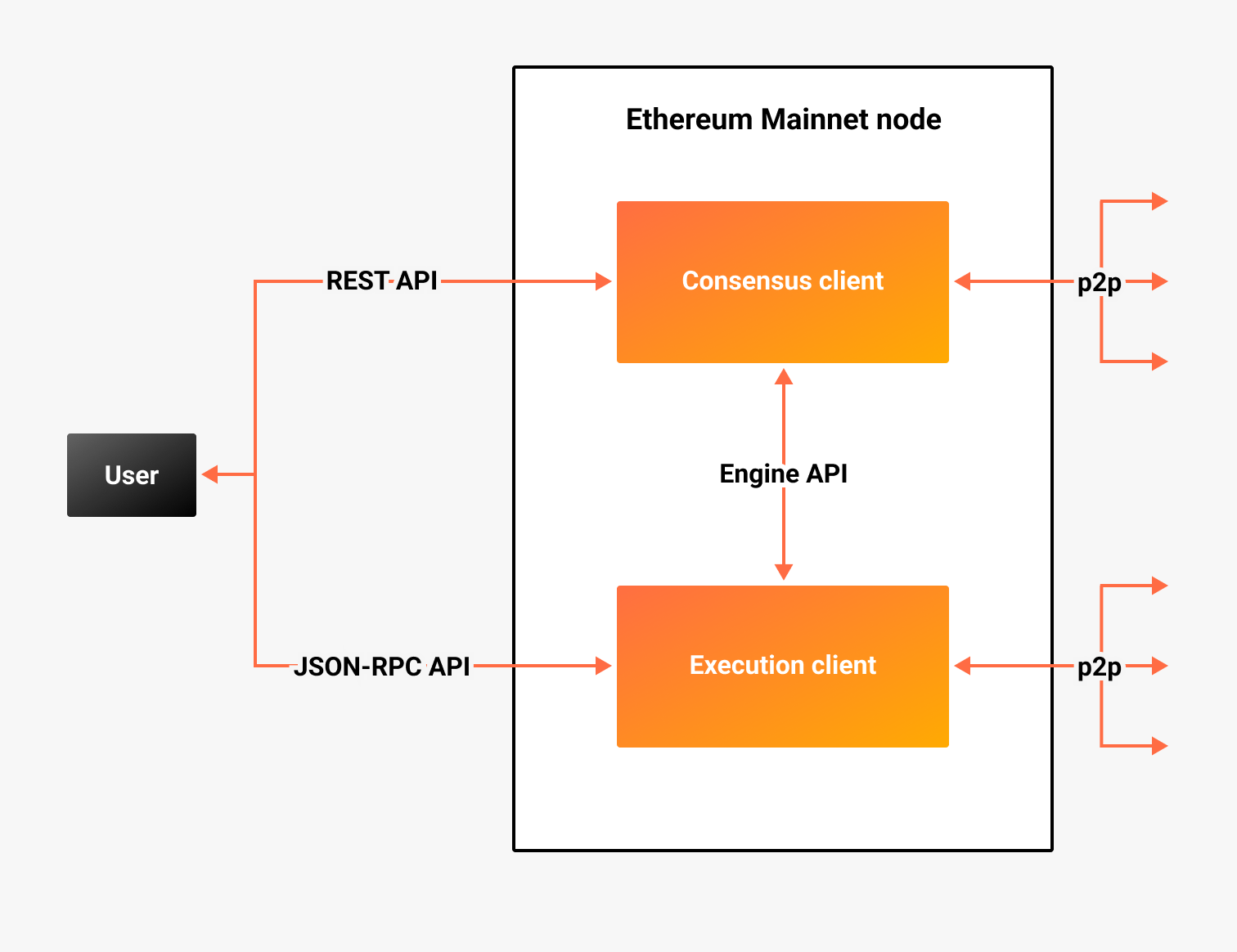Consensus and execution clients
An Ethereum node is an instance of an Ethereum client, which consists of:
- A consensus client (for example, Teku)
- An execution client (for example, Besu)
Before The Merge, execution clients were known as Eth1 clients, and consensus clients were called Eth2 clients.
The Merge, completed on September 15, 2022, transitioned Ethereum from proof of work to proof of stake consensus.
Execution and consensus clients communicate with each other using the Engine API.

Execution clients
Execution clients, such as Besu, manage the execution layer, including executing transactions and updating the world state. Execution clients serve JSON-RPC API requests and communicate with each other in a peer-to-peer network.
Consensus clients
Consensus clients, such as Teku, contain beacon node and validator client implementations. The beacon node is the primary link to the Beacon Chain (consensus layer). The validator client performs validator duties on the consensus layer. Consensus clients serve REST API requests and communicate with each other in a peer-to-peer network.
To become a validator, you must also run a validator client (either in the same process as the beacon node or separately).